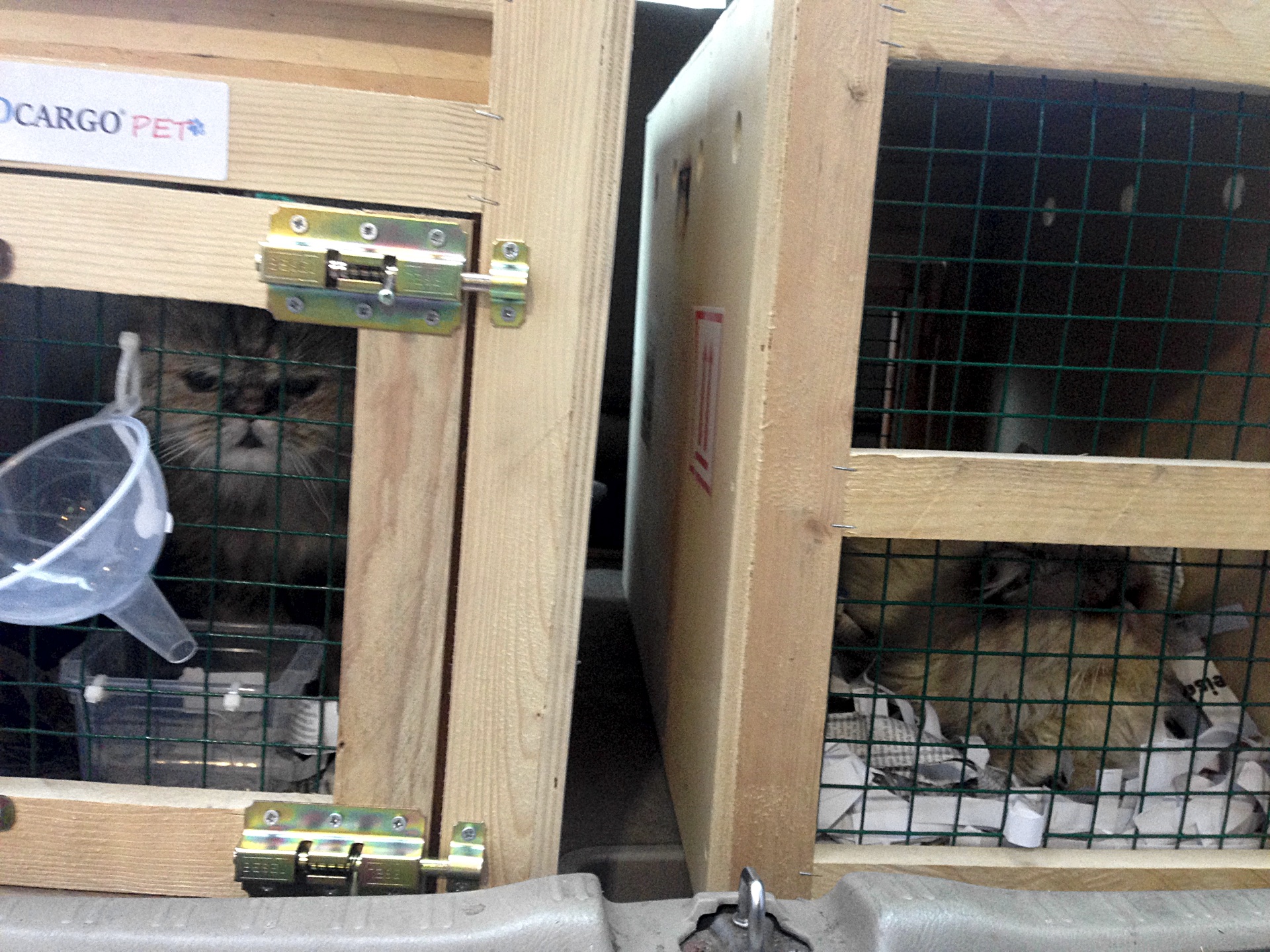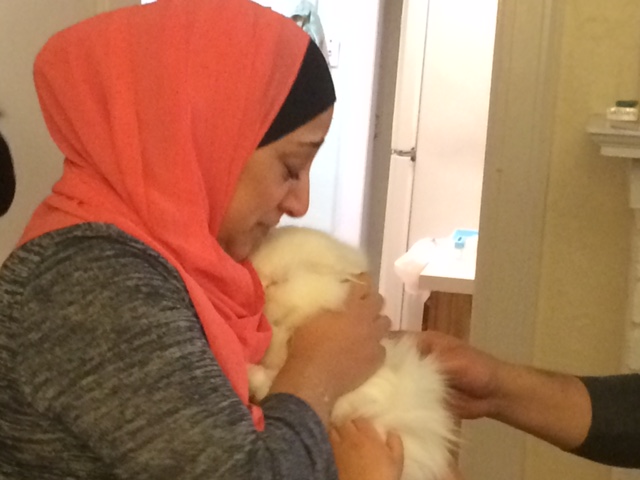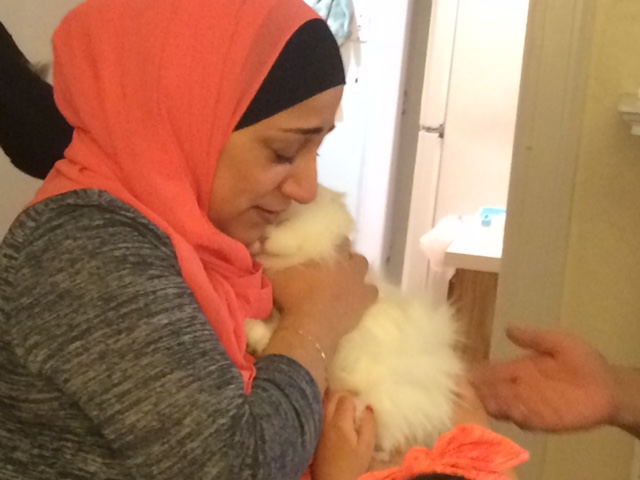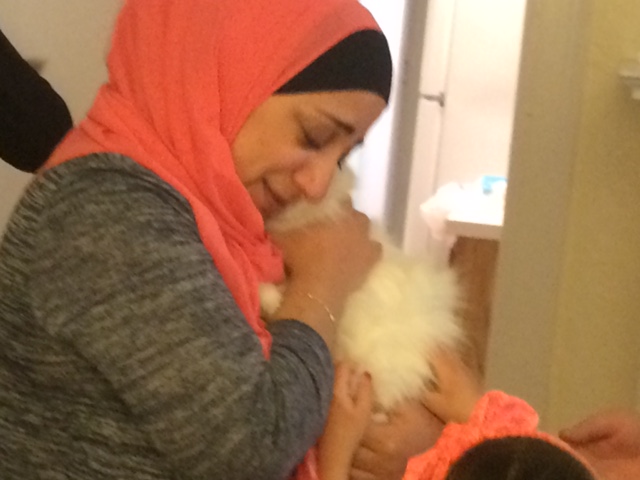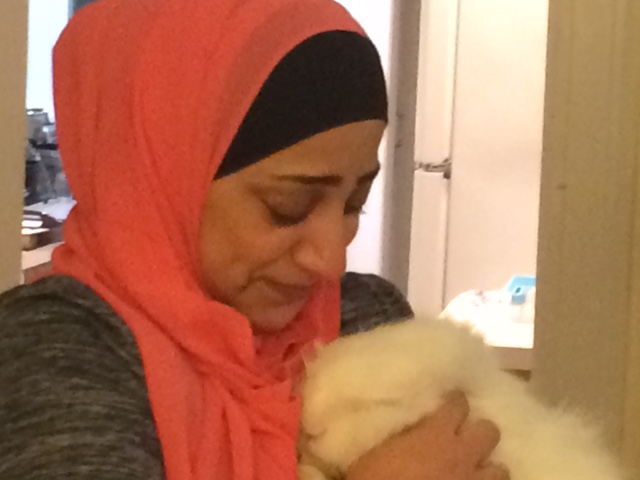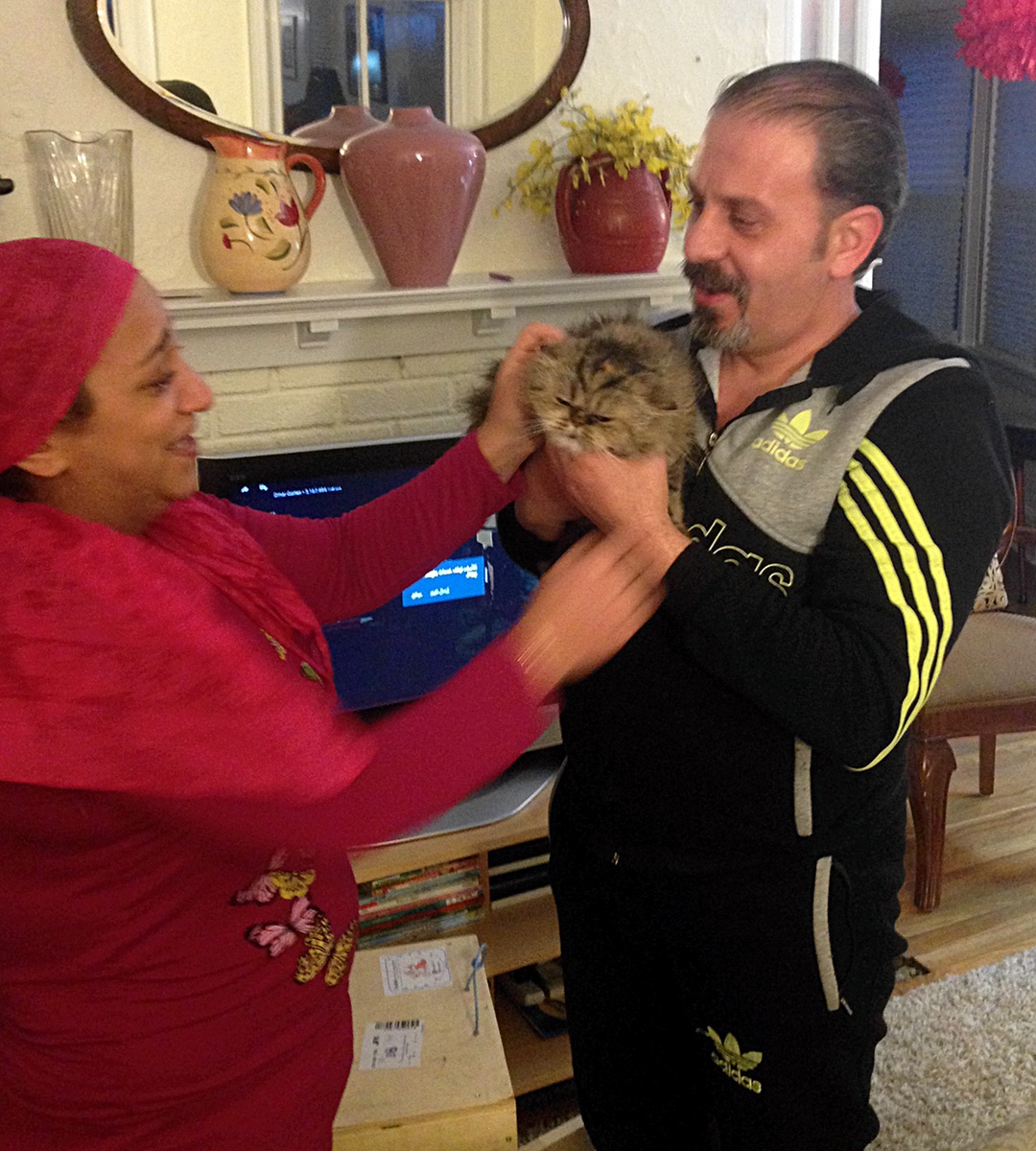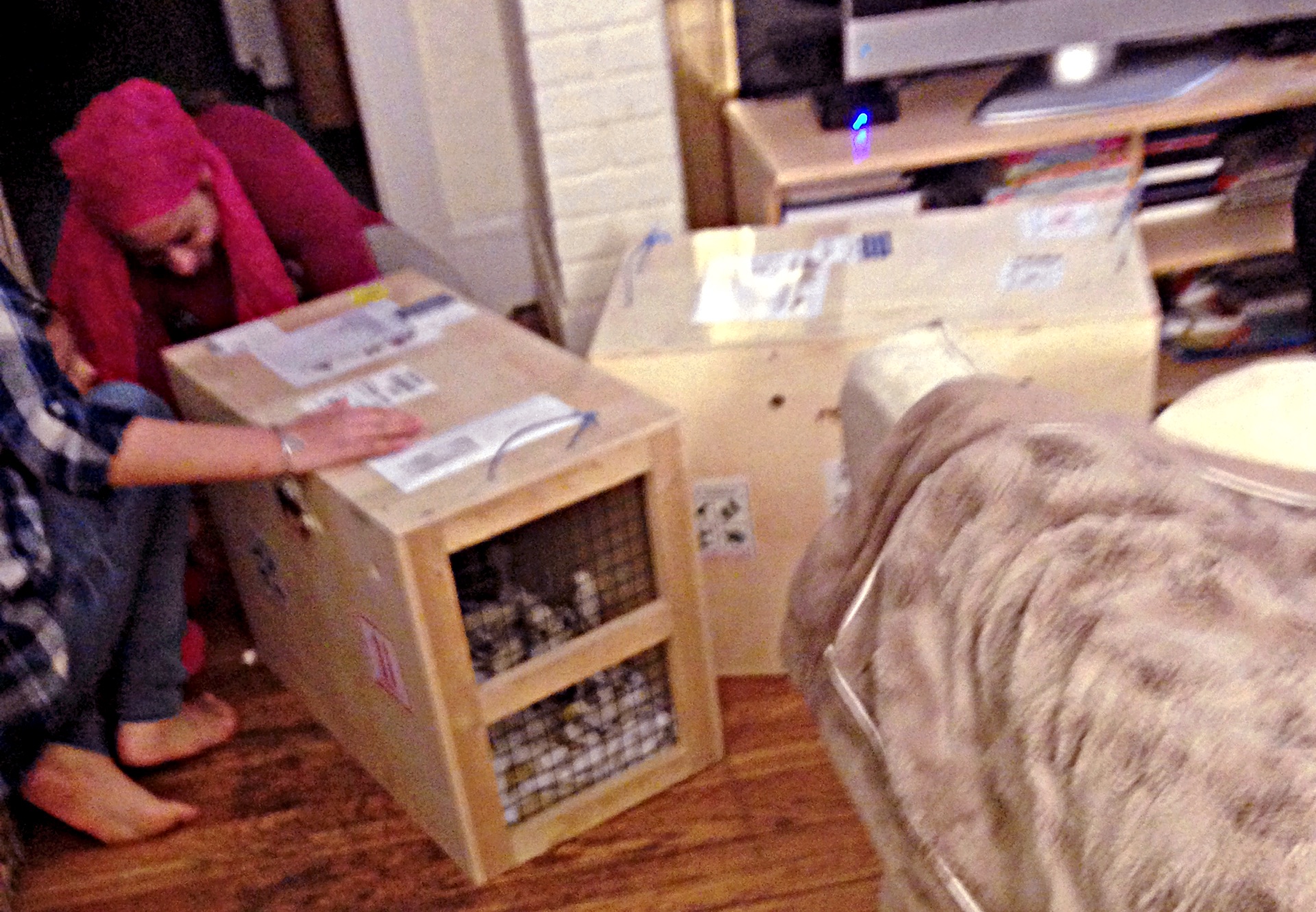Bahaa and Suzan Ali Dib and their four children arrived at JFK airport on January 19, the eve of Donald Trump’s inauguration. The Syrian refugees were eager to start their new life, but couldn’t shake their anxiety over the family members they had left behind—their four beloved cats who were not allowed to travel to America with them.
It was a year and a half ago that the Ali Dibs—Bahaa, Suzan, Lin, Tareq, Limar, and Basme—began their journey from Damascus, forced to flee by political turmoil and afraid for their well-being.
“Many people we know died,” Bahaa Ali Dib says. The former merchant once sold spices, nuts and other baking supplies to families and restaurants in Damascus, making plenty of money for a nice home and comfortable life until the current crisis turned life inside out for most Syrian families. “My wife’s brother died in the war,” Bahaa says. “My uncle and his children died. When we left Syria we were fearing for our lives.”
The clan weaved their way through Lebanon, Cairo and finally to Turkey. Their four cats Sasi, Baro (a mama cat and her kitten), Duman, and Nutella were faithfully by their sides, a comfort through incredibly dark days.
The Ali Dibs had meticulously ensured that the cats had all of their vaccinations and medical paperwork before leaving Syria. “It was as important to protect their lives as it was to protect our own,” Suzan Ali Dib said. “They stayed with us through everything. They endured our struggle.”
After an intense vetting process in Turkey, the Ali Dibs were able to obtain visas to come to the United States. The family was about to board their plane in Istanbul for their new life in America when they were informed by the International Organization for Migration, the United Nations agency that resettles refugees worldwide, that their cats could not relocate with them. The IOM’s position was that the organization resettled people, not cats.
“I began to cry and shake,” Suzan remembers now from her home in Pelham. “I was terrified. I considered cancelling the flight to the United States altogether. We didn’t know what would happen to them.”
Suzan called the family’s closest connection in America, the one who had found their landing place in Westchester via Catholic Charities and its resettlement efforts, and tried to explain the situation through her tears, the boarding announcements for the plane echoing in the background. Their connection was able to contact her own husband, who was working in Turkey at the time. He drove out to the airport to collect the cats who then bounced around between homes for the next several months before finally landing with a family friend named Osama. But it wasn’t a forever solution as Osama was preparing the leave the country himself.
“I felt like you would feel if someone had kidnapped your child,” Suzan said. “I was scared and sad and I felt like I had no choice in the matter. It was a frightening and vicious thing to experience.”
But Suzan and Bahaa carried on. They settled into a new life Pelham with the help of a nonprofit called Hearts and Homes for Refugees. The transition was exciting, but also strange, nerve-racking and scary. Despite the terrible things that forced them to leave their country, they still missed home and, as anyone who has lived with and loved an animal understands, they were worried about how their pets were faring in Turkey, worried they’d never see them again.
“Not everyone can recognize the importance of animals, but we as a family have been committed to animals our whole lives and not having our pets was almost as stressful as a lot of the other horrible things we have had to endure,” Suzan says.
Pet relocation agencies quoted the family $4,000 to relocate the cats. They didn’t have that kind of money, and they didn’t know anyone who had that kind of money to spare.
Two volunteers, Jeanne Pinder, CEO of ClearHealthCosts, an online health cost transparency company, and Christine Haran, a digital strategist at a health policy research group, heard about the Al Dib’s story and wanted to help. They began looking for both people and funds to bring the cats to the United States. HHR itself was not involved with the cats’ saga, as HHR, like the IOM, is involved in resettling people, not cats.
As word spread through the two American women’s friends, family and social networks a vast grid of animal lovers emerged to help the family, one that involved at least four dozen people on four continents, most of whom did not know each other.
Jeanne learned that any traveler from Istanbul to New York could carry a cat in a soft carrier that slid underneath a plane for $150 per animal. They just needed people who were planning on taking those flights and didn’t mind transporting a cat.
Several options emerged. There was a man who was climbing Mount Kilimanjaro in Tanzania who was scheduled to come back via Istanbul, but his layover was too short to make it a sure thing.
Two new volunteers emerged. They made reservations to carry two of the cats. Then two days before their departure they were told their reservations to bring the animals were no longer valid.
Another volunteer, Bill, a traveler headed to Washington, emerged, ready and willing to carry one cat.
A helpful Facebook friend in Turkey heard about the Al Dib’s plight and the relay race to bring the cats to America. She mentioned a loophole in the one cat rule. As long as the cats were a mother and child, or a sibling pair they could travel together. God only knew whether the airlines conduct cat DNA tests to determine familial ties, but it meant that Sasi and Baro could travel in a single carrier, effectively turning two cats into one.
Sasi and Baro spent a few days in Washington before yet another volunteer, Caroline McCarthy, picked them up and drove them to New York, using a car donated by another volunteer.
Suzan wasted little time before scooping her pets into her arms. She clutched the two animals close to her face, human nose touching cat noses. “I could tell Sasi had missed me too,” she said through tears. “I told her we loved her. That we loved her and that we waited for her. We would never just leave them.”
But Duman and Nutella remained in Istanbul. Jeanne began looking into pet transit companies. One, Dcargo, would take the pair of cats for $1,395. It was still money that the Al Dibs didn’t have. The American volunteers began fundraising. They applied for a $1,000 grant from Awesome Without Borders, from the Harnisch Foundation, to help cover the costs.
Nutella and Duman were whisked away to Ataturk Airport in Istanbul. They flew from Turkey to Amsterdam to JFK Airport in New York City where they were picked up by Jeanne and her daughter, Juno, who delivered Nutella and Duman to the Al Dibs that night.
The cats, unfazed by their own tumultuous journey across continents and oceans, soon settled into their old routines. Each cat slept with the same family member they had slept with before their separation—Stasi with Suzan, Duman with Bahaa and Baro and Nutella doing a circuit among the children.
